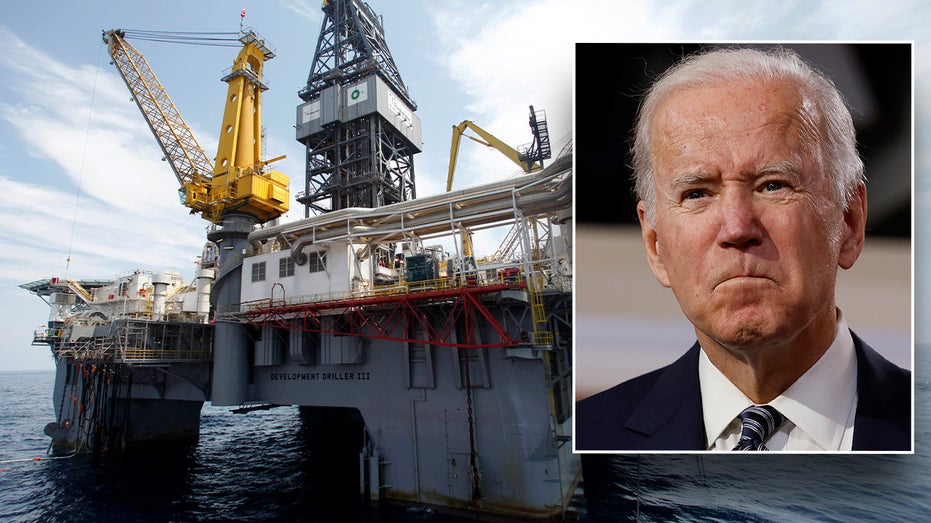The nation’s largest fossil fuel industry association filed a legal challenge against the Biden administration over its offshore oil and gas leasing program, which includes the fewest number of lease sales in U.S. history.
The American Petroleum Institute (API) filed the legal petition Monday, arguing that the Department of the Interior’s (DOI) plan restricting future offshore fossil fuel lease sales puts American consumers at risk and threatens U.S. energy security. The DOI finalized the five-year plan in December, scheduling just three Gulf of Mexico lease sales through 2029, marking the fewest number of sales ever included in such a plan.
“Demand for affordable, reliable energy is only growing, yet this administration has used every tool at its disposal to restrict access to vast energy resources in federal waters,” said API Senior Vice President and General Counsel Ryan Meyers.
“In issuing a five-year program with the fewest lease sales in history, the administration is limiting access in a region responsible for generating among the lowest carbon-intensive barrels in the world, putting American consumers at greater risk of relying on foreign sources for our future energy needs,” Meyers continued.
DOZENS OF FORMER TOP FEDERAL OFFICIALS CALL ON CONGRESS TO STRIKE DOWN BIDEN’S NATURAL GAS CRACKDOWN
Under the administration’s plan, the DOI’s Bureau of Ocean Energy Management will hold the three sales of parcels in the Gulf of Mexico in 2025, 2027 and 2029. It also rules out any leasing off the Alaskan coast and in the Atlantic and Pacific Oceans, in another departure from previous plans.
The DOI, meanwhile, signaled that it could have pursued an even more restrictive five-year program if not for the Inflation Reduction Act. That legislation — Democrats’ $739 billion climate and tax package signed by President Biden in 2022 — ties new offshore wind energy leases to new oil and gas leases, meaning the former could be threatened without consistent fossil fuel leasing.
REPUBLICANS PROBE CCP-TIED NONPROFIT FUNNELING MONEY TO US ECO GROUPS
Issuing a program with less than three sales, a possibility the DOI floated last year to the dismay of energy industry groups, may have jeopardized Biden’s plan to ensure the U.S. develops 30 gigawatts of offshore wind by 2030. The nation currently has just two tiny pilot projects, one off the coast of Rhode Island and the other off Virginia’s coast, but the DOI has permitted several large-scale facilities since 2021 that are slated to come online in coming years.
Under the 1953 Outer Continental Shelf Lands Act, the federal government is required to issue plans every five years laying out prospective offshore oil and gas lease sales. The most recent plan, which was implemented in 2017, expired in June 2022.
The persistent delay in issuing a replacement plan, though, represented a departure from precedent set by both Republican and Democratic administrations, which have historically finalized replacements immediately after previous plans expired.
The most recent two plans, both formulated under the Obama administration, included more than 10 offshore oil and gas lease sales each. And the Trump administration sought to hold a total of 47 lease sales across the Atlantic region, the Pacific region and the Gulf of Mexico and off Alaska’s coasts between 2022 and 2027, but that proposal was axed after Biden took office in 2021.
“Today, we are taking action to challenge this shortsighted program so that future generations of Americans will continue to benefit from our energy advantage for decades to come,” Meyers, from API, said on Monday.
The DOI declined to comment when reached by Fox News Digital.
























